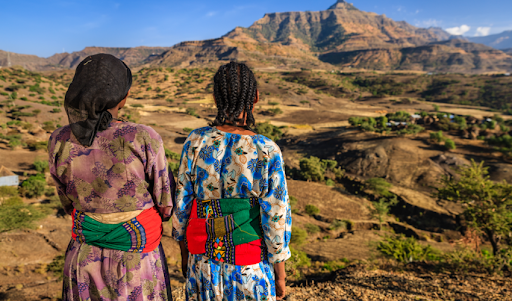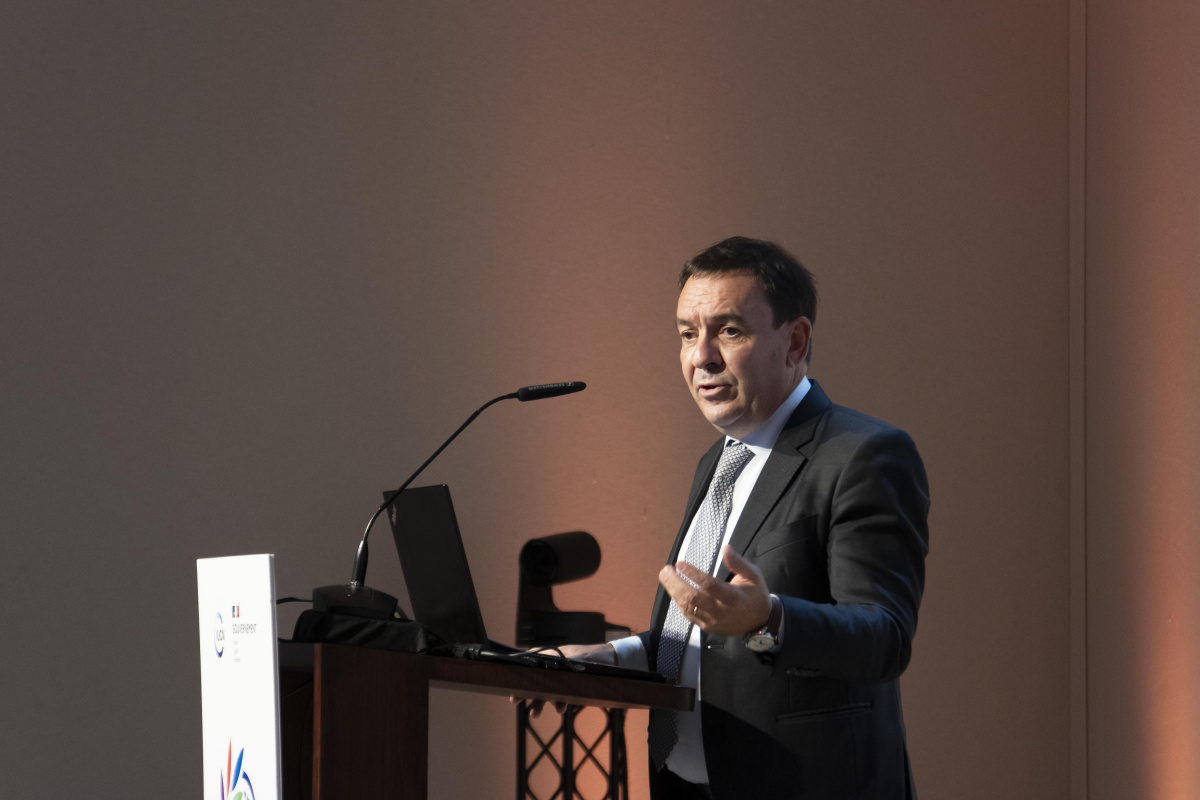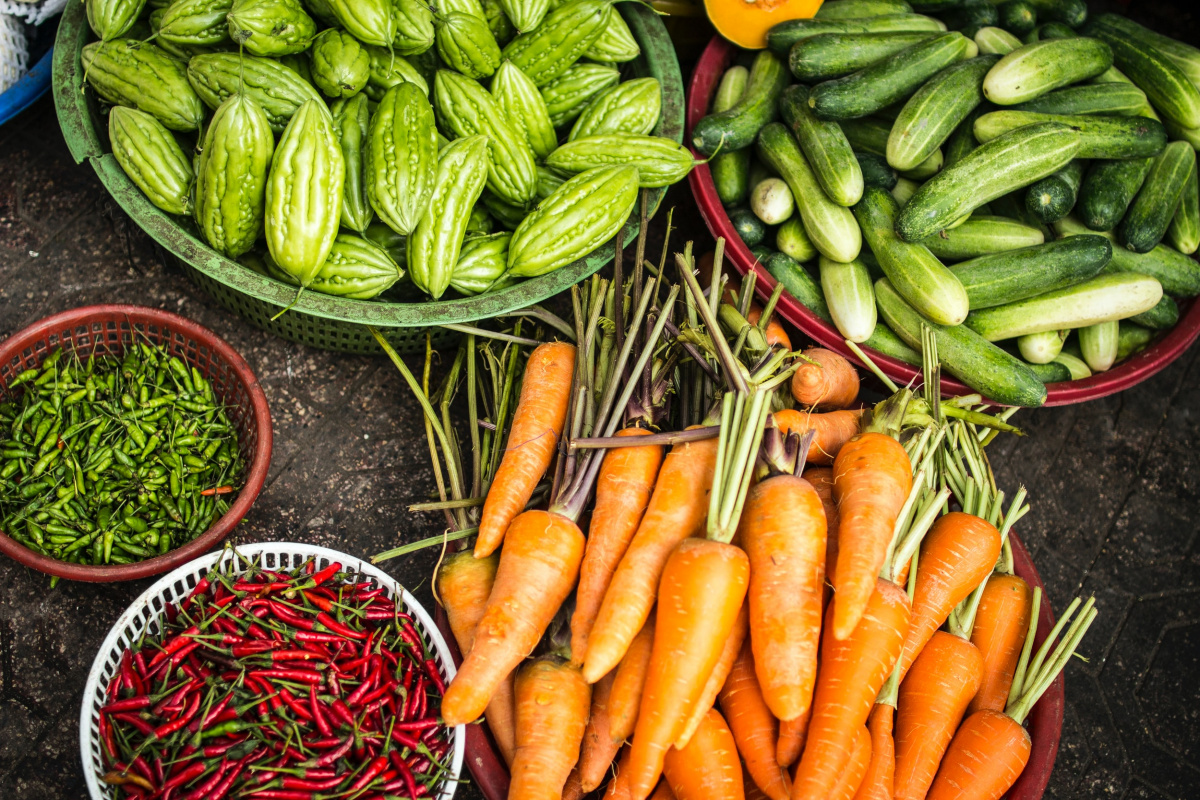Rights-based approaches must be placed at the heart of conservation efforts
Efforts to address the dual crises of biodiversity loss and climate change must ensure that human rights are protected and that recognition and support for the leadership roles of Indigenous Peoples, local communities, women and youth reflect the importance of their contributions to the conservation of nature.

Photo: IUCN
As we celebrate Human Rights Day and take a moment to look back at 2021, we are reminded that human rights are fundamental to conserving nature and to ensuring that nature conservation advances wider sustainable development goals. This is why environmental action must fully integrate recognition and respect for human rights, with particular attention to overcoming social inequalities and enabling the full agency and diverse contributions of Indigenous Peoples, local communities, women and youth.
In a year still grappling with the devastating and unequal impacts of the COVID-19 pandemic, we have also seen significant developments recognising the deep interconnections among nature, people and human rights. In a landmark decision many decades in the making, the UN Human Rights Council adopted a resolution in October formally recognising that access to a safe, clean, healthy and sustainable environment is itself a human right. IUCN applauded this decision, and a related decision establishing a Special Rapporteur on Human Rights and Climate Change, both of which offer new tools and support to combat the impacts of environmental degradation and climate change on human rights.
Human rights and environment issues and decisions also featured prominently at the IUCN World Conservation Congress, held in September in Marseille, France. A dedicated Rights and Governance thematic stream offered multiple spaces for dialogue, with diverse participants strongly voicing that efforts to conserve biodiversity and combat climate change must take a rights-based approach – ensuring that the rights of all people are respected and protected and that traditional power dynamics are transformed, enabling Indigenous Peoples, local communities, women and youth to take on leadership roles that are in proportion to their contributions to nature and in line with social justice.
Indigenous Peoples’ Organisation (IPO) Members of IUCN marked their first-ever participation in a Congress as IPOs by organising the World Summit of Indigenous Peoples and Nature. There they launched a Global Indigenous Agenda, which calls for the secure recognition and respect for collective indigenous rights and governance of lands, territories, waters, coastal seas and natural resources and for specific actions by the international community to advance the realisation of the Agenda. Throughout the Congress, prominent voices included those of youth raising alarms about the existential crisis of climate change for future generations, women facing pervasive dangers of gender-based violence in their efforts to manage and protect the environment and environmental human rights defenders working at great risk to combat threats to their environments and rights. Through its Marseille Manifesto, the Congress also called upon the global community to strengthen inclusivity and equity through use of the IUCN Natural Resource Governance Framework.
Human rights concerns were also emphasised in diverse decisions adopted at the Congress by IUCN Members. Resolutions on the post-2020 global biodiversity framework and its area-based conservation targets include calls for appropriate recognition of the rights of Indigenous Peoples to their lands, territories and resources, as set out in UNDRIP, as well full respect for Indigenous knowledge systems and free, prior and informed consent. A resolution on protecting environmental human and peoples’ rights defenders and whistleblowers puts forward a set of actions to promote and support the work of these defenders and protect them from threats. A COICA (Coordinadora de las Organizaciones Indígenas de la Cuenca Amazónica)-led resolution further calls for protecting, conserving and sustainably managing at least 80% of the Amazon by 2025, recognising the leadership of Indigenous Peoples and with the full recognition of their rights.
These decisions and discussions have helped promote ongoing attention to rights-based and gender-responsive approaches to conservation. Collaborations and dialogues on gender in Nationally-determined Contributions, a new vision of climate finance from indigenous peoples and local communities and advancing rights-based approaches to Nature-based Solutions and the post-2020 Global Biodiversity Framework and have continued to build knowledge and connections on the key actions needed to ensure that efforts to address climate change and biodiversity loss centre human rights and inclusion.
What all these discussions and decisions demonstrate is that our planet is facing an acute crisis, with disproportionate burdens falling on those contributing least to the crisis. These problems demand action, and to act we must mobilise all the tools at our disposal: knowledge and convening power, policy, law and inclusive institutions, increased collaboration, technology and financial resources. Underpinning all this is a need to listen more and to have spaces for dialogue that rebalance power, build trust and allow us to realise our diversity as a source of strength.
The events of 2021 show that doors to advancing rights-based approaches to conservation and the human right to a healthy environment are opening more widely – and we must all walk through them. Our challenge for the new year is to work together to mobilise increased action toward these changes, in order to sustain the richness and diversity of the planet we all share.
This blog was written by Jenny Springer, Director, Global Programme on Governance and Rights, IUCN



